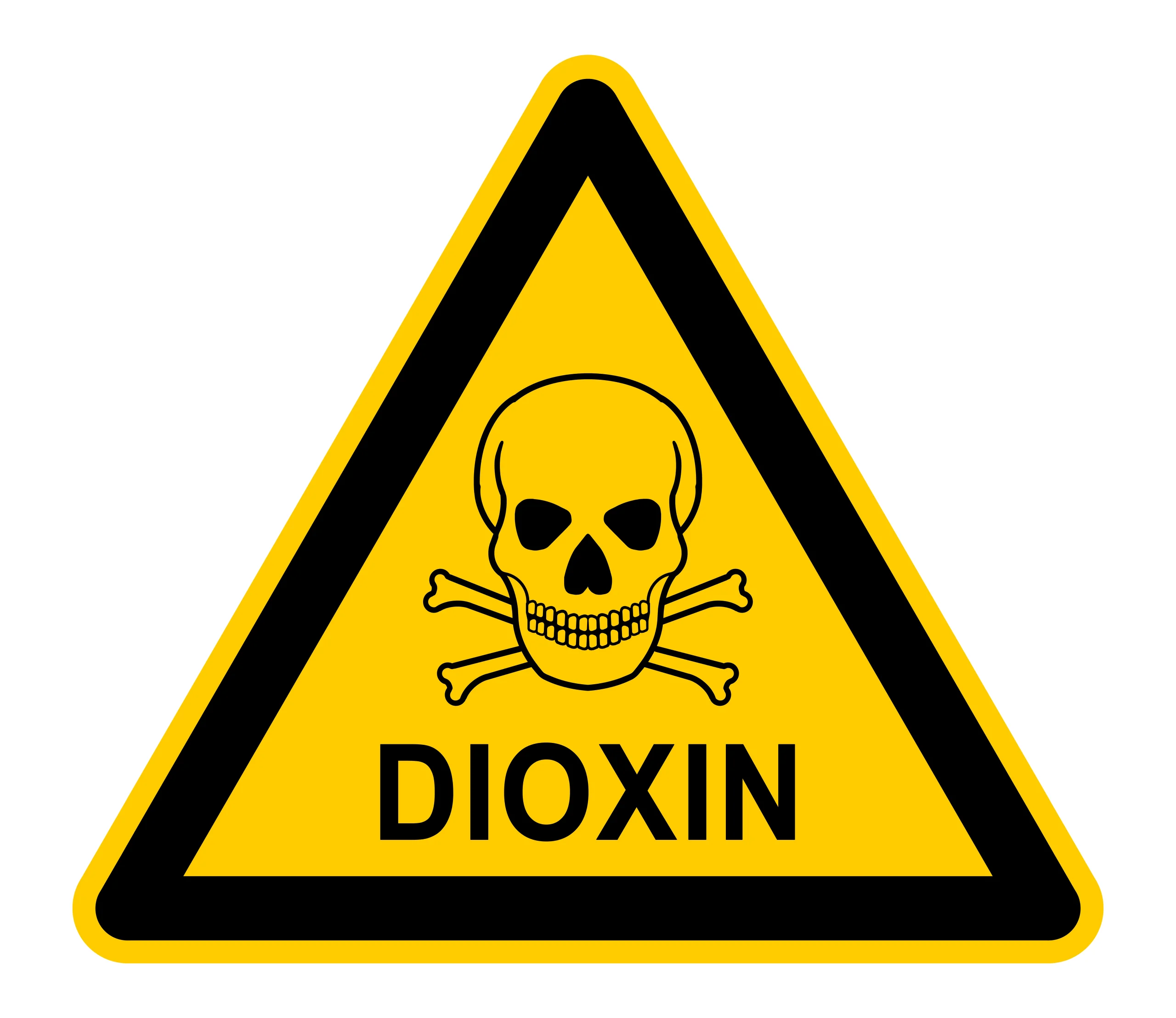Key Takeaways
Recent Posts
Categories
What to Know About Agent Orange Compensation for Dependents
Key Takeaways
Unfortunately, families of Vietnam War veterans who were exposed to the deadly herbicide Agent Orange often face a similar struggle. A loved one bravely served their country, only to return home with physical and emotional scars that would haunt them for the rest of their days. And now, as a dependent of that veteran, you are left to bear the burden of their sacrifice, coping with the pain and grief of their loss while struggling with your own health conditions related to your parent’s exposure to Agent Orange.
Agent Orange was used by the U.S. military during the Vietnam War as a herbicide to get rid of foliage in order to be able to see the enemy more clearly. Agent Orange contains a toxic chemical called dioxin, and the exposure to this chemical has resulted in various health conditions and disabilities for veterans and their dependents. If you are a dependent of a veteran who was exposed to Agent Orange, you may be eligible for compensation benefits from the VA; yet, navigating the process of applying for these benefits can be complex and overwhelming. While it may never heal the emotional wounds you carry, this compensation can provide much-needed support and stability during a difficult time.
The effects of Agent Orange exposure on dependents can be long-lasting. Seeking benefits from the VA is helpful when attempting to manage the associated costs and difficulties of this process. Unfortunately, the application process can require extensive documentation and evidence, and it is necessary to know how to determine eligibility, what documentation is required, and what types of benefits are available to dependents.
What is Agent Orange?
During the Vietnam War, the U.S. military used Agent Orange, an herbicide, to clear vegetation in order to see enemy targets with more clarity. Agent Orange is comprised of equal parts 2,4-Dichlorophenoxyacetic (2,4-D) and 2,4,5-Trichlorophenoxyacetic acid (2,4,5-T), which contained a contaminant known as 2, 3, 7, 8-Tetrachlorodibenzo-p-dioxin (TCDD). This hazardous dioxin takes years to break down once released into the environment, causing various health effects to those exposed over time. Long after its use, it was discovered that the herbicide contained this dioxin, and it was linked to many serious health issues to those exposed. These health problems can include various forms of cancer, as well as conditions like diabetes, Parkinson's disease, and birth defects in the children of those who were exposed to the herbicide.

What are the Health Effects of Agent Orange?
Agent Orange can have long-term health effects on the veterans and families that were exposed to the herbicide. Some health conditions related to Agent Orange exposure include:
Cancer
Agent Orange exposure has been linked to various types of cancer, including prostate cancer, lung cancer, and non-Hodgkin's lymphoma. Studies have shown that the risk of these cancers is higher in veterans who were exposed to Agent Orange compared to those who were not. Additionally, there is evidence to suggest that the children of exposed individuals may also have an increased risk of developing certain types of cancer.
Birth defects
There is a well-established link between Agent Orange exposure and birth defects, particularly spina bifida. Spina bifida is a neural tube defect that occurs when the spinal column does not fully close during fetal development. Studies have shown that the risk of spina bifida is higher in the children of exposed individuals compared to the general population.
Parkinson's disease
Parkinson's disease is a degenerative disorder of the nervous system that affects movement. Research has suggested that exposure to Agent Orange may increase the risk of developing Parkinson's disease, although the exact mechanism by which this occurs is not fully understood.
Peripheral neuropathy
Peripheral neuropathy is a type of nerve damage that can cause weakness, numbness, and pain in the hands and feet. Studies have shown that exposure to Agent Orange may increase the risk of developing peripheral neuropathy, although the severity of the condition can vary widely.
Type 2 diabetes
Type 2 diabetes is a condition in which the body does not produce enough insulin or is unable to use insulin properly. There is evidence to suggest that exposure to Agent Orange may increase the risk of developing type 2 diabetes, although the exact mechanism by which this occurs is not fully understood.
Chronic obstructive pulmonary disease (COPD)
COPD is a progressive lung disease that makes it difficult to breathe. Studies have shown that exposure to Agent Orange may increase the risk of developing COPD, although the severity of the condition can vary widely.
Ischemic heart disease
Ischemic heart disease is a type of heart disease caused by reduced blood flow to the heart. There is evidence to suggest that exposure to Agent Orange may increase the risk of developing ischemic heart disease, although the exact mechanism by which this occurs is not fully understood.
If you or your loved one were exposed to Agent Orange, contact a healthcare provider to get screened for these potentially harmful health conditions. Their severity will vary widely, and not all individuals who were exposed to Agent Orange will develop these conditions. Yet, it is pertinent to catch these issues as quickly as possible for the best treatment options.
What Health Care Benefits are Available to Dependents of Veterans Who Experienced Agent Orange?
Dependents of veterans who were exposed to Agent Orange may be eligible for several benefits from the VA, including compensatory benefits. These include:
Dependency and Indemnity Compensation (DIC)
DIC is a tax-free monetary benefit paid to surviving spouses and dependents of veterans who died as a result of their military service. To be eligible for DIC, the veteran must have been exposed to Agent Orange during their military service and their death must have been caused by a presumptive condition related to Agent Orange exposure.
Survivors Pension
Survivors Pension is a tax-free monetary benefit paid to the surviving spouses and dependents of veterans who have low income and are permanently and totally disabled, or who died as a result of a non-service-related condition. Surviving spouses and dependents of veterans who were exposed to Agent Orange may be eligible for this benefit if the veteran's death was not caused by a presumptive condition related to Agent Orange exposure.
Education and Training
Dependents of veterans who died as a result of their military service or who have a permanent and total service-connected disability may be eligible for education and training benefits through the VA. These benefits may include payment for tuition, books, and other educational expenses.
Health Care
Surviving spouses and dependents of veterans who were exposed to Agent Orange may be eligible for health care benefits through the VA. These benefits may include medical and dental care, as well as mental health care.
Dependents of veterans who were exposed to Agent Orange can apply for these benefits through the VA. You will need the proper documentation of the veteran's military service, as well as any medical evidence related to the exposure to Agent Orange and the health conditions that followed. You must be able to prove a connection to the herbicide in order to receive benefits.
What Makes Dependents Eligible for Receiving Agent Orange Compensation?
Dependents of veterans who were exposed to Agent Orange are eligible for compensation if the exposure to Agent Orange caused or contributed to the dependent's medical condition.
Dependents who may be eligible include:
Spouses
The spouse of a veteran who was exposed to Agent Orange and who has a medical condition related to the exposure may be eligible for compensation.
Children
Children of veterans who were exposed to Agent Orange and who have certain birth defects or medical conditions may be eligible for compensation. These conditions include spina bifida, a type of neural tube defect, and certain other birth defects.
Parents
Parents of veterans who were exposed to Agent Orange and who died as a result of a service-related condition may be eligible for compensation.
In order to receive compensation, a dependent should provide medical proof, showing that the condition is related to the veteran's exposure to Agent Orange. The VA may also require additional evidence, such as service records, medical records, and other documentation.
How Do Dependents Apply for Agent Orange VA Benefits?
If a veteran is able, they must apply for dependent benefits through their own VA claims. If the veteran is deceased, then the dependent may apply themselves through the veteran’s VA portal. This also applies if the veteran is unable to apply themselves due to a severe disability.
Dependents exposed to Agent Orange can apply for VA benefits by following these steps:
Gather important documents
You should gather important documents related to the veteran's military service, including discharge papers and any documentation of exposure to Agent Orange. A dependent should also gather any medical evidence related to the exposure to Agent Orange and any resulting health conditions.
Determine eligibility
You should determine your eligibility for VA benefits by reviewing the VA's eligibility criteria for each benefit program. Eligibility criteria may vary depending on the specific benefit being applied for.
Apply for benefits
Dependents can apply for benefits online through the VA's eBenefits portal, in person at a VA regional office, or by mail. The application process may vary depending on the specific benefit being applied for, but generally requires the completion of a VA form and the submission of supporting documentation.
Follow up on the application
After submitting the application, you should follow up with the VA to ensure that their application is being processed in a timely manner. The VA may request additional documentation or information to support the claims.
Receive a decision
Once the VA has reviewed the application and supporting documentation, the survivor will receive a decision regarding their eligibility for benefits. If the application is approved, the survivor will begin receiving benefits.
The application process for VA benefits is complex and may require the assistance of a VA-accredited attorney.
What Happens if a Dependent is Denied VA Compensation Benefits?
If a dependent is denied VA benefits, they can appeal the decision. Because this process can be complex, contacting an accredited Wettermark Keith VA attorney is a wise decision after a denial.
Before starting a formal appeal, consider filing a supplemental claim or requesting a higher-level review to get your case re-reviewed. If those are unsuccessful, your attorney can help file a Notice of Disagreement to formally begin the appeals process. Once appealed, the VA will thoroughly review your dependent's case. It will go before the Board of Veterans' Appeals where a judge will assess the evidence and decide. If still unsatisfied, you may be able to further appeal to the U.S. Court of Appeals for Veterans Claims.
Note the appeals process can take years to get a final decision. However, pursuing appeals is important if you believe you're entitled to benefits. As part of appeals, veterans can request retroactive benefits back to the original claim date for the dependent. To maximize potential back pay, starting the appeals process quickly is advised. Contact a VA attorney as soon as possible after a denial to discuss your options and initiate appeals. This can help ensure you receive the compensation you deserve.
Wettermark Keith: VA Benefits Attorneys that will Appeal Your Denials
If you fell victim to Agent Orange, then you may be eligible for VA benefits. If you submit a claim and are denied, then you need to contact an attorney as soon as possible. When you partner with Wettermark Keith, our team won’t back down from getting your deserved VA benefits. Not only do our attorneys have massive amounts of experience, they are accredited by the VA themselves to carry out appeals.
With offices located throughout Alabama, Tennessee, and Florida, Wettermark Keith has an excellent reputation as one of the most accomplished personal injury firms in the country. We have a diverse range of practice areas, including VA Disability claims. We practice with care and compassion, making sure we understand your disability and convey that to the VA as best as we can. We do this by building strong relationships based on constant communication, trust, and a dedication to the truth. Caring for you is our goal, and winning is just how we show it. Contact us to set up your free consultation with an attorney at Wettermark Keith by calling us or contacting us through our online form.
Frequently Asked Questions
There is no specific autoimmune disease that is exclusively associated with Agent Orange exposure in dependents of veterans. However, studies have shown that exposure to Agent Orange may increase the risk of developing autoimmune diseases such as rheumatoid arthritis, lupus, and multiple sclerosis. The exact mechanisms behind this association are not well understood, but it is believed that exposure to certain chemicals in Agent Orange may trigger an autoimmune response in some individuals.
Yes, children of Agent Orange veterans may be eligible for benefits if they have a birth defect or certain medical conditions that are linked to the veteran's exposure to Agent Orange. The VA has a list of conditions that are linked to Agent Orange exposure, including spina bifida, certain types of leukemia, and certain types of cancers. Children who have one of these conditions may be eligible for compensation, healthcare, and other benefits. However, children of veterans who were exposed to Agent Orange but do not have a presumptive condition may still be eligible for benefits on a case-by-case basis, depending on the specific circumstances.
A dependent for Agent Orange exposure is defined as a biological child or adopted child of a Vietnam-era veteran who has a birth defect associated with a covered birth defect condition, or who has spina bifida as a biological child of a Vietnam-era veteran. Additionally, a surviving spouse or parent of a Vietnam-era veteran who died from a service-connected disability related to Agent Orange exposure may also be considered a dependent for certain VA benefits.
Exposure to Agent Orange has been linked to various genetic effects. Dioxin is a highly toxic and persistent environmental contaminant that can cause damage to DNA, and exposure to dioxin can lead to changes in gene expression and alterations in DNA methylation patterns. These changes can affect cellular processes and have been linked to a range of adverse health effects, including cancer, reproductive and developmental problems, immune system dysfunction, and neurological disorders. The exact mechanisms by which dioxin and Agent Orange affect genes are still not fully understood, and further research is needed to fully show the genetic effects of Agent Orange exposure.
Veterans and their dependents who were exposed to Agent Orange may be eligible for various benefits from the VA. These benefits include compensation for service-connected disabilities and illnesses related to Agent Orange exposure, healthcare, and vocational rehabilitation services. Additionally, dependents of veterans who died as a result of an Agent Orange-related illness may be eligible for survivor benefits, including Dependency and Indemnity Compensation (DIC) and educational assistance. The exact benefits and eligibility requirements vary depending on the individual circumstances, and it's recommended to consult with an attorney to determine eligibility and how to apply for benefits.
The amount of compensation that Agent Orange victims receive varies depending on the individual circumstances and the severity of the disability or illness. The VA determines compensation based on the degree of disability or impairment, with higher compensation rates for more severe conditions. Dependents of veterans may also be eligible for various compensation and benefits, including healthcare and education assistance.
YOU DON’T HAVE TO DO THIS ALONE
CONTACT VA DISABILITY LAWYERS
To learn more about our law firm, our services, how to access our veterans law resources, and more, contact us today.
You get a free consultation and we won’t charge you a dime until we’ve won your case.


